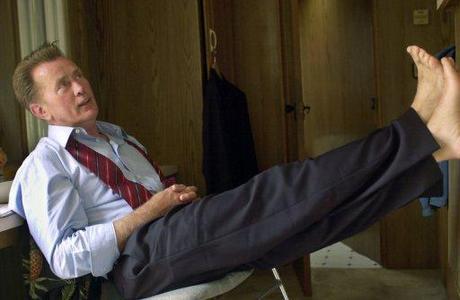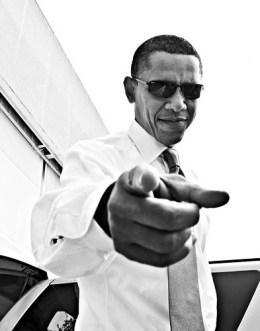Recipe for a President: take one part intelligence and mix with two parts charisma, two parts passion, one part humility, and a dash of eloquence; sprinkle with laugh lines, wrap it in wit, and serve warm with a smile for the camera. We want our leader to be equally adept at both foreign policy and cracking one-liners, balancing the budget while playing pick-up basketball games with the White House staff. No matter the situation, the Leader of the Free World is expected to be talented and unflappable – in short, the President is expected to be Jed Bartlet.

Oh, how the sarcasm burns. Obviously, the drama of The West Wing made for good television, but that came largely in spite of, rather than because of, its subject matter – a fact that has only helped to motivate the widespread ignorance throughout the Fifty States of just how Washington works. With the President at the center of the show’s focus, everything else about the federal government fell to the periphery; Bartlet was a main character, so congresspeople, justices, cabinet members, and the rest became merely supporting roles in the hierarchy. Every week, America tuned in to see what the President and his team would do next to save the country – cleverly joking all the way.
A problem immediately presents itself: this is not how the American government actually works. On one level, simple inaccuracies in procedure and function are reinforced by Hollywood depictions of the President as the main character in politics. For example, the President neither creates policy nor passes laws, so the fifth-season storyline concerning Bartlet’s maneuverings around Social Security is, at the very least, misleading – especially since it is never revealed whether or not the fictional Congress approves the plan. Americans who took Sorkin’s drama as a step away from documentary came away with a sorely one-sided view of Washington that fundamentally misunderstands the idea of the separation of governmental powers.
Moreover, the dream of finding such a perfect candidate for the presidency is beyond unrealistic. No nominee has a team of writers crafting every conversation that happens in front of the cameras so as to allow for just the right mixture of wit and wisdom to lead into the commercial break. Real candidates are real people – they make mistakes, tell jokes that fall flat, lose key debates, and – in a word – fail.

The point of the presidency is not to put on a show, making the country laugh while it feels safe and warm; it is to speak truth and represent the country with excellence. No more or less important than any other branch, the executive arm of Washington should not simply be a figurehead dancing to distract the people. As Christians called to focus on whatever is true, honorable, just, pure, lovely, and commendable (Phil. 4:8), we would do well to keep in mind that our culture’s obsession with amusement is fleeting at best. As the day draws near to select (or re-select) our President, we must remember that true leadership is more about telling us what we need to hear, not simply giving us what we want to see.
NOTE: It now strikes me that what we have here is a nearly textbook example of Jean Baudrillard’s “precession of simulacra” where an simulated fiction eventually overtakes (and becomes by replacement) that which was originally Real. Dubbed “hyperreality,” this new construct of experience is created by the repeated reinforcement or reapplication of false ideas until society begins to accept them as true; for example, the use of computer technology to enhance models or movie performers, making them appear more fit or “attractive” than they actually are, leads society to uphold that fake physical appearance as a beautiful ideal, thereby redefining the popular understanding of “attractiveness”. What was originally unreal becomes “real” — the hyperreal.
The “Wow, That President Could Be My Coolest Buddy” image falls precisely into this same category, partly thanks to the storytelling expertise of Sorkin and others. When I originally wrote this piece two years ago, I apparently had not drawn what is now this rather disturbingly obvious connection. If I am now correct, then Baudrillard’s insights offer very little hope of reversing this shift in expectations, since the Sorkin Effect has quite likely already pushed the country into a new hyperreal perspective on the Presidency (as the results of the 2012 election cycle seemed to likewise indicate).
This essay was originally published at FaithfulPolitics.org on March 5th, 2012.
Tags: Aaron Sorkin, Faithful Politics, Jean Baudrillard, Jed Bartlet, Politics, President Bartlet, President Obama, President of the United States, Simulacra, The West Wing